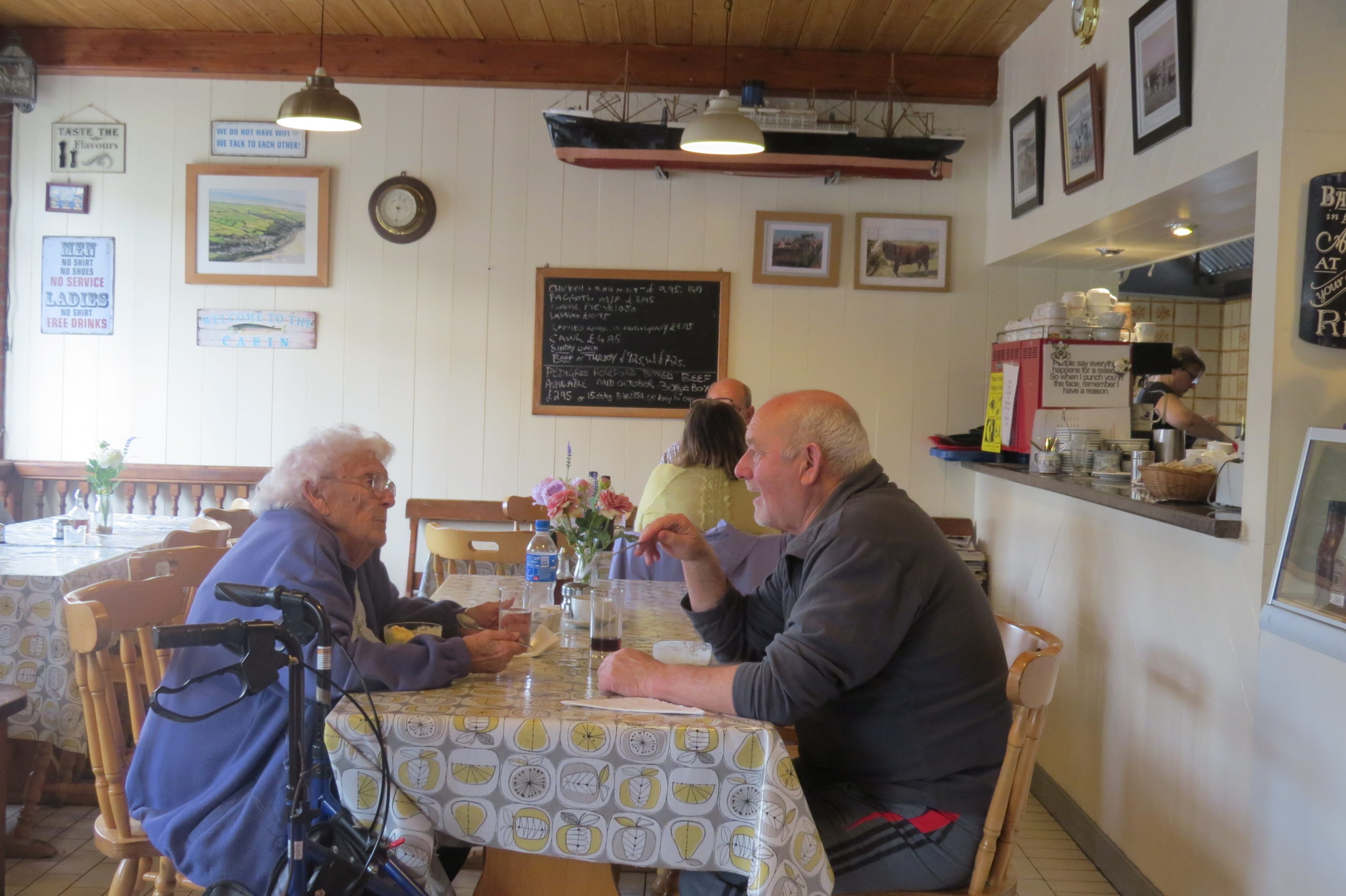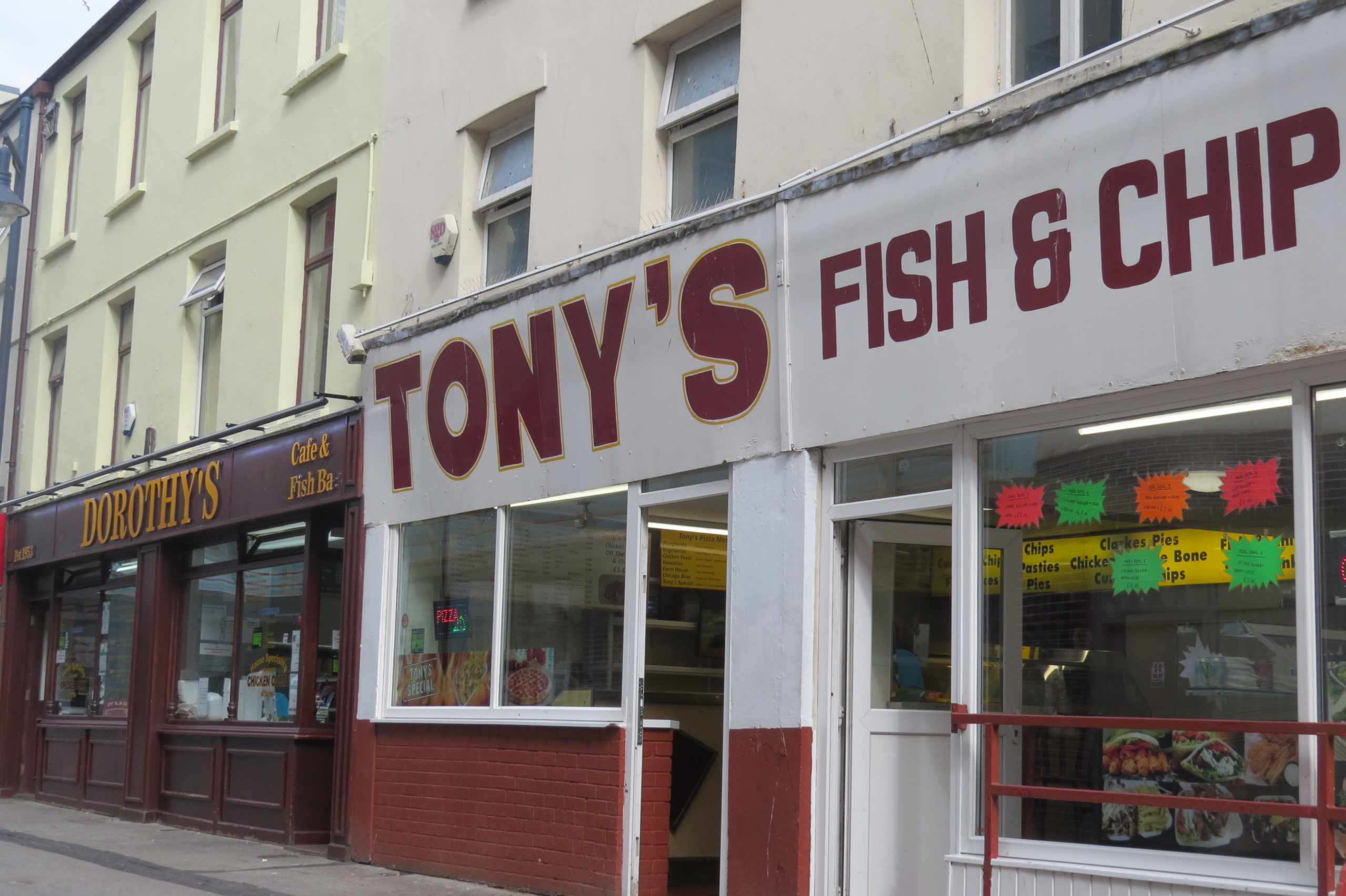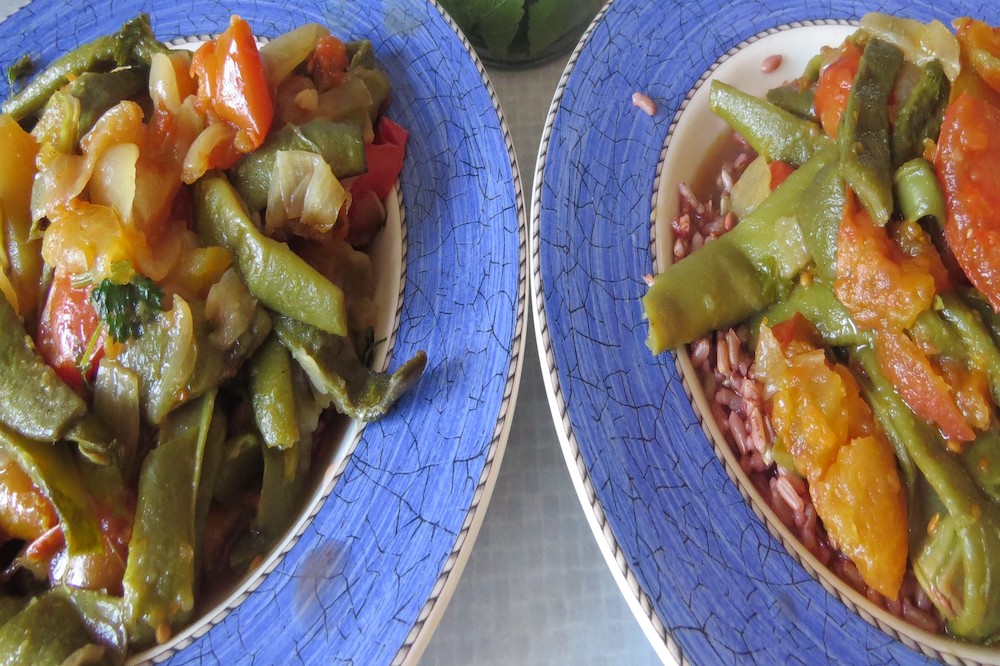My Welsh Food Story

Carwyn Graves
Eating is at once the most social and the most personal of experiences. Perhaps we know that as well as anywhere in Wales today; with a mind-boggling array of tastes to suit any palate available in any local supermarket, and food festivals popping up from Abergavenny to Amlwch.
But despite all this, proudly sporting leek insignia (the concept of a national vegetable really isn’t all that normal) and harping on about cawl, as a nation we tend to have a complicated relationship with food.
Over the next few months I’ll be trying to get under the skin of that complicated relationship and exploring some of the fascinating and sometimes surprising diversity that characterizes Welsh food – past and present – and hopefully helping to shift us just a little further away from the stereotypes.
But I want to start with by sketching some of my own Welsh food stories; partly because they are personal to me and so shape how I see things, and partly because I think they’re shared by more people in this country than we might think…

The galley kitchen
Join me for tea in a slightly damp terraced house in South Wales in the late nineties. Mam is making tea in the galley kitchen, and we’re screeching in and out of the garden with our plastic trucks and swords.
Down the garden there’s some half-hearted veg-growing going on that we’re all proud of anyway. And rhubarb growing in a shady corner. For rhubarb fool, of course. On the windowsill, bags of empty crisp packets to collect tokens for schools from Robert down the road who sits in his doorway whenever the sun comes out.
Tea was heaven and involved anything from malted milks to bread and butter pudding. But we never ate out; or at least, never in a restaurant. Sunday lunch in a pub on holiday – yes, that happened. Tea in a caffi (sausage, beans and chips) or something from the chippy (with free scrumps) or the Chinese.
There were other cafes too that featured – fancier ones in town, where we might eat after a morning’s shopping. But restaurants were there to be seen (not that there were many there even to see), not frequented. And a Welsh restaurant? Don’t make me laugh.

Like a parable
I learned to cook from my Mam, and from refugees to Wales. Not that I think for a moment there’s anything unique in that, but it feels a little like a parable. Samir is from Sudan and came into our lives when I was ten; Paul is Syrian and arrived in Wales six years later.
Both men are wonderful cooks, though back home the former was a lawyer; the latter, an engineer. In both cases, those occupations, rather than the cooking, were relevant to why they ended up persecuted.
“Next week, I will make you tagine.” That, from Samir, in 2003 or so changed our lives in a small but significant way as he became host and purveyor of entirely new flavours. The key utensil itself had to be sent over from friends in Morocco, an enormous ochre-red feast-maker.
My grandfather, raised self-sufficient in a hut in depression-era North Pembrokeshire, loved it. Paul taught me how to make lubi bi zeit, which now I make with ingredients grown on my own veg patch in Carmarthenshire.
Of course, this is all highly personal.

Putting on this great spread
A lot of our relatives were based in West Wales. That is a terrible way of putting it; let me try again. A lot of our family still lives near the old home (on that side) in and around north Pembrokeshire. We spent summers there, visiting elderly aunties and great uncles.
There were things people round there did differently to anyone else I knew, like take a loaf of bread onto their chest to slice it. Or putting tea out on china roughly halfway between cinio and swper, at the kind of time that delighted my voracious eleven-year-old self but seemed incomprehensible by the time you were eighteen.
But the strangest thing of all was the habit, endearing in retrospect, of putting on this great spread of delicious baked goods and drinks, encouraging you to eat on and eat up all the while standing to one side and abstaining themselves. I had to explain that to my English girlfriend as yet another ‘cultural thing.’
Idiosyncratic
I am acutely aware as I write these things up and muse on them anew that they are all idiosyncratic experiences that, while they have shaped my attitudes to food, can’t be presented as being in any significant way representative of Welsh food as a whole over recent decades.
But I also wonder; they were all, after all, social experiences, mediated if not dictated by cultural expectations and perhaps norms. Some of those have shifted even over the last twenty years or so; there is something to ponder in that very fact.
Food is going to be all too pressing a matter for too many people once again this winter. It is at the crux of many of the environmental issues facing humanity and is a key indicator of social inequality, the cause of misery when it should gladden the heart.
Much of the problem here can be laid squarely at the feet of what some have called ‘the Americanisation’ of food, that has crushed diversity of food production, introduced previously unknown lifestyle diseases and by externalizing costs created enormous ecological challenges for future generations.
So this is all political (and a crucial response to this is currently passing through the Senedd with cross-party support – MS Peter Fox’s ‘Food Wales bill’. You could make a real difference by writing to your MS and asking them to support it.) But like all real politics, it starts with the personal, and the social. Join me over the coming months as we explore personal, social and cultural tales around Welsh food.
Carwyn Graves is a writer based in Carmarthen, whose new book ‘Welsh Food Stories’, on Welsh foods past and present is published by Calon and can be purchased here…..
Support our Nation today
For the price of a cup of coffee a month you can help us create an independent, not-for-profit, national news service for the people of Wales, by the people of Wales.






An immediate end must be brought to this old insult, this belittling of a great nation, this imposition of the English crown. Y Tywysog Cymru can rightly, and must, only be chosen by the people of Wales.
Slicing and buttering a loaf against the apron/ chest was common throughout Cymru, due to large families having to be fed quickly. Good article, though. Timely!!